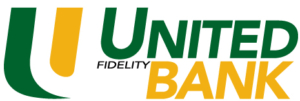Taking control of your finances is crucial at every stage of life. Whether you’re saving for a down payment, planning for retirement, or simply striving for greater financial peace of mind, understanding your spending habits, and creating a budget are essential steps.
1. Understanding Your Spending
Before you can effectively manage your money, you need to understand where it’s going. This involves a thorough analysis of your spending patterns.
- Track Every Dollar: Utilize your bank’s online and mobile banking tools. Analyze your transaction history carefully. Identify recurring expenses, impulse purchases, and any “money drains” – those sneaky expenses that consistently chip away at your budget.
- Categorize Your Spending: Divide your expenses into specific categories like housing, transportation, food, entertainment, healthcare, education, childcare, savings, and debt repayment. This granular breakdown will reveal spending patterns you might not have noticed.
- Identify Areas for Improvement: Analyze your spending patterns to identify areas where you can cut back. Can you reduce dining out expenses? Can you negotiate lower rates for your utilities? Can you explore more affordable entertainment options?
- The “Needs vs. Wants” Analysis: Before making any purchase, ask yourself:
- Do I need this? (Distinguish between essential needs and discretionary wants.)
- Can I afford this? (Consider the impact on your overall budget and financial goals.)
- Will this bring me long-term value? (Avoid impulsive purchases that offer little lasting benefit.)
2. Building a Budget That Works for You
Creating a budget is a key step in taking control of your finances. A well-defined budget provides a framework for making conscious financial decisions and helps you stay on track towards your financial goals.
- Calculate Your Net Income: Determine your net income (take-home pay) after taxes and other deductions.
- Set Clear Financial Goals:
- Define your long-term goals: Retirement, homeownership, travel, education – what matters most to you?
- Set SMART goals:
- Specific: “Save $20,000 for a down payment on a home.”
- Measurable: “Contribute $500 per month to my retirement account.”
- Achievable: Set realistic and attainable goals.
- Relevant: Ensure your goals align with your values and aspirations.
- Time-bound: Set deadlines for your savings goals (e.g., “Save $20,000 within the next two years”).
- Create a Realistic Budget:
- Explore Budgeting Methodologies:
- The 50/30/20 Rule: A common guideline suggests allocating 50% of your income towards needs (housing, utilities, groceries, transportation), 30% towards wants (entertainment, dining out, hobbies, travel), and 20% towards savings and debt repayment. However, this is a guideline. Adjust it based on your individual needs and income.
- The Zero-Based Budgeting Method: Allocate every dollar of your income to a specific category, ensuring that all income is accounted for.
- Utilize Budgeting Tools:
- Budgeting Apps: Explore user-friendly budgeting apps like Mint, Personal Capital, or YNAB (You Need A Budget) to track spending, create budgets, and set financial goals.
- Spreadsheets: Utilize spreadsheets (like Excel or Google Sheets) to manually track your income and expenses, create custom budgets, and visualize your financial progress.
- Explore Budgeting Methodologies:
3. Build an Emergency Fund
Building an Emergency Fund provides a safety net for unexpected expenses, such as medical bills, car repairs, or job loss.
- Aim for 3-6 Months of Living Expenses: Ideally, your emergency fund should cover 3-6 months of living expenses.
- Start Small and Gradually Increase: Begin with a small amount and gradually increase your contributions over time.
- Utilize High-Yield Savings Accounts: Consider a high-yield savings account to maximize your returns on your emergency fund.
- Treat Your Emergency Fund as Untouchable: Avoid dipping into your emergency fund for non-essential expenses.
4. Maximizing Your Savings & Investments
Saving and investing are important for building long-term financial security.
- Open a High-Yield Savings Account: Maximize your savings by choosing a high-yield savings account with competitive interest rates.
- Explore Certificates of Deposit (CDs): Consider CDs for longer-term savings goals, as they typically offer higher interest rates than regular savings accounts.
- Contribute to Retirement Accounts
- Maximize 401(k) Contributions: Take full advantage of employer-sponsored 401(k) plans, including any employer match.
- Consider an IRA: Open and contribute to a Traditional or Roth IRA to supplement your retirement savings.
- Work with a Financial Advisor: Consult with a qualified financial advisor to develop a personalized investment strategy.
5. Managing Debt Wisely
Managing debt effectively is essential for long-term financial well-being.
- Prioritize High-Interest Debt: Aggressively pay down high-interest debt, such as credit card debt.
- Explore Debt Consolidation Options: Consider consolidating high-interest debt into a lower-interest loan, such as a personal loan or balance transfer credit card.
- Maintain a Good Credit Score: Your credit score plays a vital role in your financial health. Monitor your credit report regularly and take steps to improve your credit score.
6. Utilize Your Bank’s Online and Mobile Banking Tools:
Your bank can be a valuable resource in your financial journey. Take advantage of your bank’s online and mobile banking tools to help you stay on track.
- Online Bill Pay: Schedule and track bill payments online, saving time and reducing the risk of late fees.
- Mobile Check Deposit: Deposit checks quickly and securely using your smartphone.
- Budgeting Tools: Utilize built-in budgeting tools to track spending, set savings goals, and create spending limits.
- Financial Calculators: Explore tools like retirement calculators, loan calculators, and savings calculators to help you make informed financial decisions.
7. Building a Strong Financial Foundation
Building a strong financial foundation is an ongoing process.
- Review and Adjust Regularly: Regularly review your budget and adjust as needed to reflect changes in your income, expenses, and financial goals.
- Stay Informed: Stay updated on financial news and trends. Read articles, attend financial seminars, and utilize online resources.
- Educate Yourself Continuously: Continuously learn about personal finance through books, articles, and online resources.
Building a strong financial foundation is an ongoing journey. By embracing these principles, you can budget effectively to gain control of your finances, achieve your financial goals, and build a secure future.










